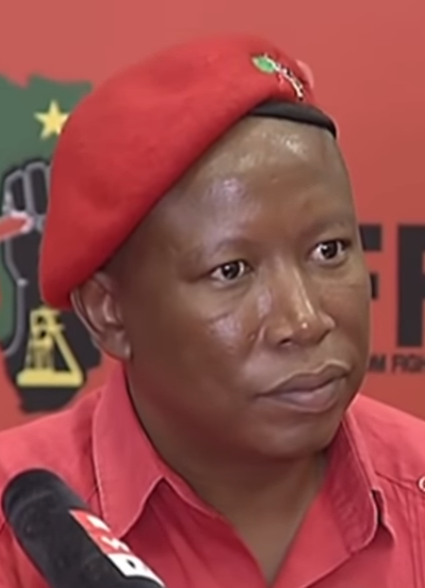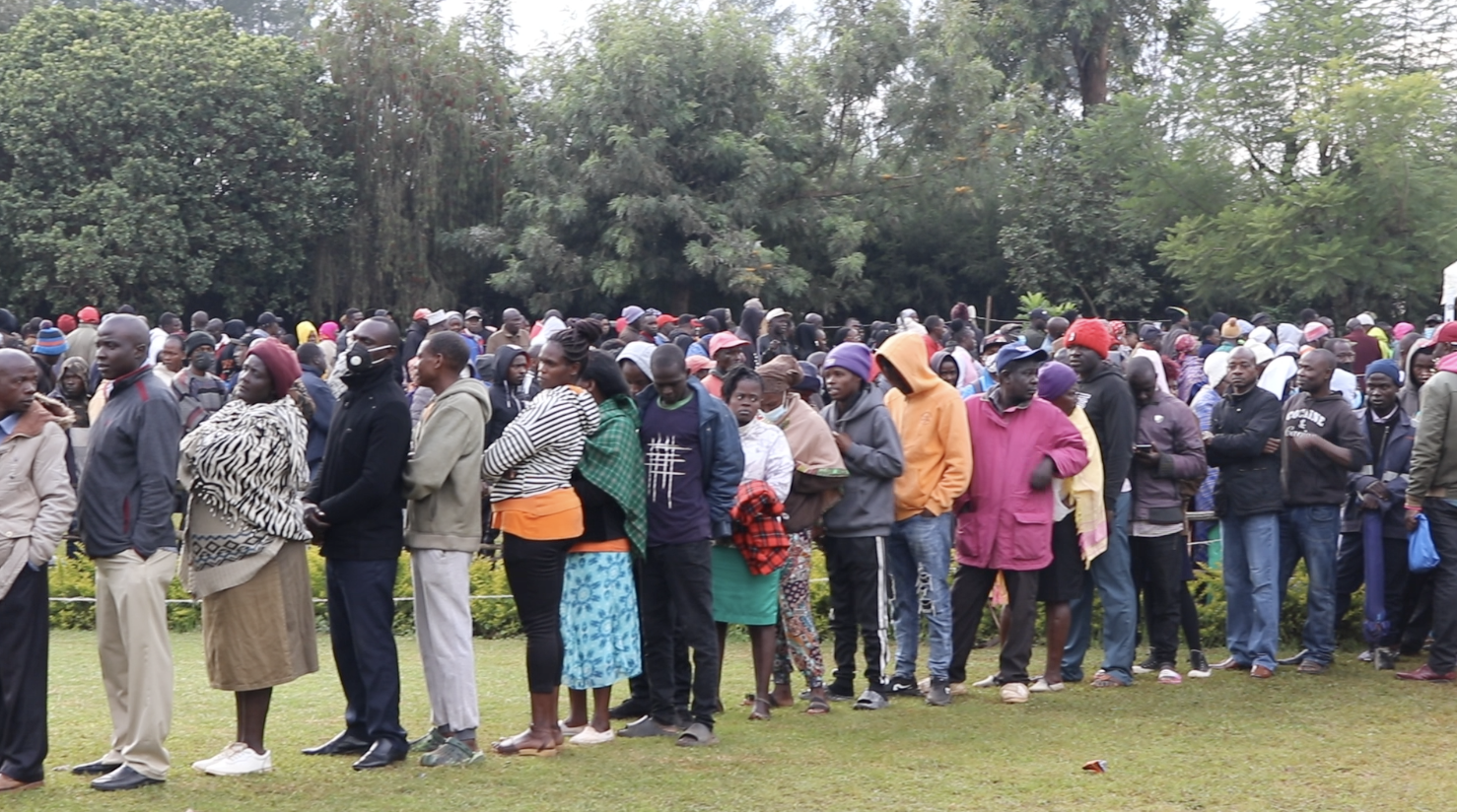News
The Grim Prospect of the EFF Governing SA Looms
What the EFF really wants is a weak ANC that depends on it to stay in power so that it can use its relatively small share of the vote to propel it — and its pecuniary leaders — into government.

Research Director, The Brenthurst Foundation

Director, The Brenthurst Foundation

The vote for a new mayor of Johannesburg has come and gone and the DA's Mpho Phalatse has been replaced by the ANC's Dada Morero. The meeting which took this decision is being contested and it is unclear where this will end,
What is clear is the emerging shape of a possible post-2024 coalition — and it does not look good.
In November last year, the EFF's Julius Malema pronounced on coalitions: “There's nowhere where the EFF is going to vote with the ANC. We are going to disrupt them to teach them a lesson.”
Not for the first time, the EFF has been exposed as an opportunistic and intrinsically untrustworthy political player. When the opportunity to reattach itself to the disrupted rents flowing from Johannesburg arose, it simply turned 180 degrees without apology and without apparently an ounce of remorse.
When ActionSA broke its deal with the DA-led city government and offered the Speaker position in the Johannesburg Council to the IFP (supposedly as a first step in ActionSA seizing the mayoral post), the EFF voted with the ANC, Patriotic Alliance and Cope to throw out the coalition which had been making headway in restoring shattered governance to Johannesburg by rooting out corrupt contracts and getting the public service back on a delivery footing. All of this in a climate of national decline as power outages hammered residents and severely damaged infrastructure.
There are many takeaways from this sorry saga. One is that an eight-party coalition is inherently unstable. That a party with a single seat can turn tail and upend a government, is costly for a big city already broken by years of neglect, but would be disastrous at a national level. Functional coalitions require two or three big parties to make sense, not a swarm of personality parties.
Voters — and party funders — need to think hard about this in the run-up to 2024.
The significance of the EFF's pivot towards the ANC should also not be underestimated. Until now, the EFF has been coy, pretending that it loathes the ANC and wants to see its demise. This, it turns out, has been disingenuous. What the EFF really wants is a weak ANC that depends on it to stay in power so that it can use its relatively small share of the vote to propel it — and its pecuniary leaders — into government.
A populist coalition
The Johannesburg pivot puts into sharp focus the possibility of a populist coalition at national level should the ANC's support decline to below 50% in the 2024 election.
The ANC has been holding on to a 50%-plus victory with its nails, according to the most optimistic polls, and is likely to fall into the mid-40s, according to others. Given that this polling was done before the collapse of the electricity supply which has ushered in an unprecedented monthlong nightmare of rolling blackouts, the possibility of a sub-50% ANC is on the rise.
It's time to start thinking about the outline of that ANC-EFF future. What will happen to government and governance? Where will South Africa go?
The consequences of this would be stark, most notably:
- The likelihood of the EFF's Julius Malema being given a senior role in the national government, possibly even the deputy presidency;
- The likelihood of agreement on policies which have hitherto been elusive, most notably the revival of the “appropriation without compensation” of land and nationalisation of the Reserve Bank;
- The likelihood of a shift towards nationalisation or, at the very least, aggressive state regulation and taxation of the private sector;
- A shift in momentum within the ANC towards the dominance of the Radical Economic Transformation faction, which supports State Capture and shares the EFF's looney tunes economic policies; and
- The return of a virulent (and possibly violent) mutation of State Capture. The EFF looted the VBS bank while in opposition. What will happen when it is helping to run the Treasury is moot.
As has occurred in all other countries where this sort of populist economics has been implemented — think Zimbabwe and Venezuela — this will result in capital flight on a grand scale, the collapse of the currency and hyperinflation. The flight of skills and talent will grow exponentially. You know the sorry story.
The EFF has a bullying mentality in opposition. A magistrate has just made the unbelievable finding that it is okay for EFF leaders to push around police officers. Once its hands are on the levers of power, you can expect this to take on a new dimension. Look out for the collapse of constitutionalism, the defiance of court orders and the use of the security forces and legislation to suppress criticism — all under the guise of exorcising the ghost of apartheid which will be summoned for a series of cameo appearances.
Until now, the view has been that the above scenario is unlikely given the EFF's public antipathy towards the ANC and its bold public statements that it will never vote with it. It has even gone so far as to support DA votes on the “better the devil you know” principle. The Johannesburg decision changes all of that.
When the possibility of power arises, it turns out the EFF will seize it, devil or no devil. From Johannesburg it appears the opportunism of other, smaller parties could, unwittingly or not, assist it in its aims.
South Africa, you have been warned.
This article originally appeared on the Daily Maverick
Photo: Journalist at eNCA


